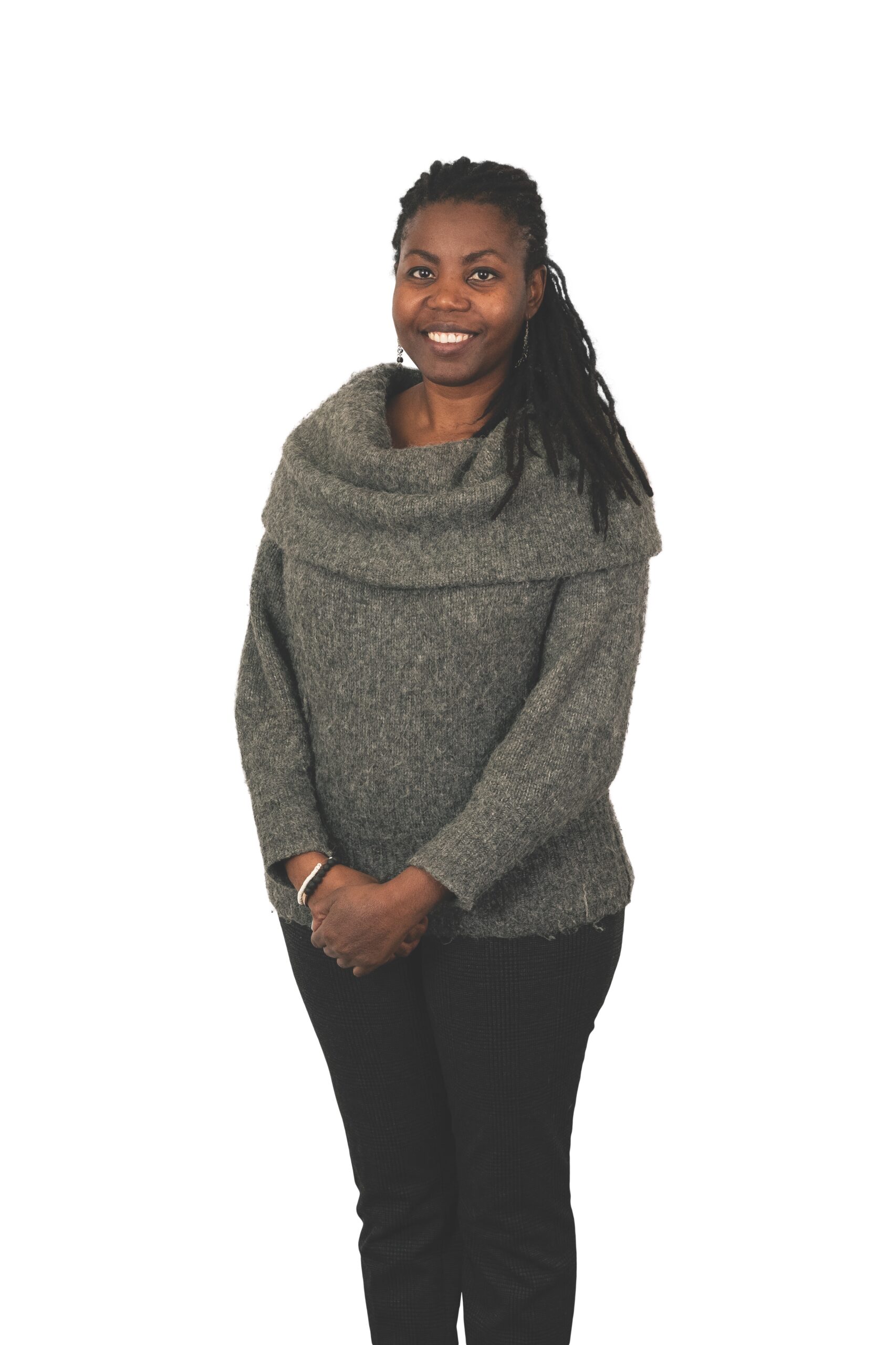She was the first. Her students will follow.
The English Professor was the first in her family to embark on higher education. Now she is helping her students do the same.
When she was 18, Martha Ndakalako made the trip from Namibia to Texas to become the first person in her family to go to college. Her spirit for adventure and a love for literature led her there. “I wanted to know the United States and figure out the world of education. I was young, so I didn’t think too far into the future. I threw myself into it because I knew I had an opportunity,” says Ndakalako. But it was not without feelings of loneliness.
She grew up in a small mining town owned by the De Beers diamond company. Her father taught English to the miners in town and her mother, a feminist activist, taught her to read at an early age, fostering an appreciation for literature. Her parents always
placed a high value on education, having been denied a college education themselves in the colonized nation.
“That informed a lot of my educational experience. I wanted to learn more about the experience of colonized people and the stories they were telling.”
For Ndakalako, it’s difficult to disentangle her first-generation experience with her immigrant experience. Unlike the other students in her undergraduate classes at University of Texas at Dallas, she had to learn how to navigate a new educational system in a new country. Even the way homework was assigned was different than in Namibia. The way her peers spoke in class left her feeling as if they were in on a secret she wasn’t.
For first-generation immigrants and college students, college is a leap of faith. It takes courage and perseverance. “There is this language of education that can be really intimidating for first-generation students. I didn’t know how to address professors or feel comfortable speaking to people who were more educated than me, though I knew I was smart.”
That’s where the loneliness comes in. Often she thinks back to the 1958 novel by Chinua Achebe, Things Fall Apart, a piece of classic African literature she teaches in her classes at Gustavus today. “There is a part in the book where the characters sing ‘For whom is it well, for whom is it well?’ I think about how many of us go through some difficult points in our lives, and we should take comfort in the fact we’re not alone.”
